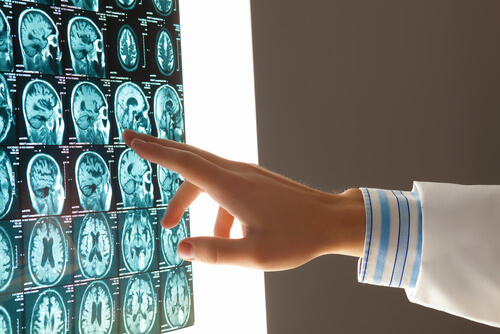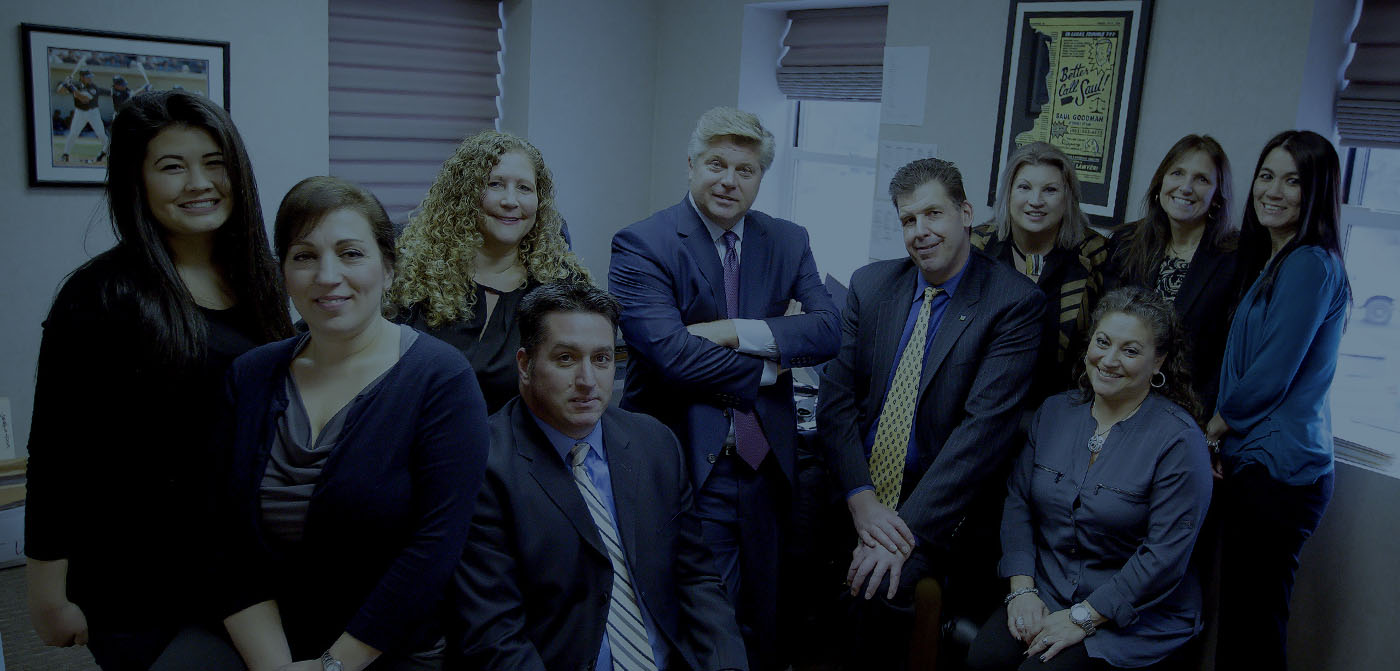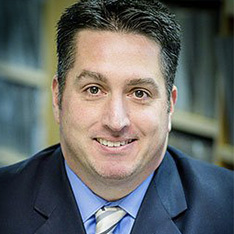Schedule a Free Consultation
New York Lawyers for Head and Traumatic Brain Injuries
Traumatic brain injuries (TBIs) are among the most devastating injuries that a person can suffer. Due to the brain’s central role in regulating body functions, along with being the center of conscious thought, a TBI can result in a wide variety of substantial and debilitating impairments. As a result, any injury that causes a major impact or significant shaking to the skull can cause severe long-term impairment, even when the skull itself is not fractured.
When negligence on the part of an individual or company leaves a person with a traumatic brain injury, the victim and his or her family should not bear the costs alone. The New York City brain injury lawyers at Zlotolow & Associates have been fighting for the rights of accident victims for more than 20 years. Depending on the circumstances of your case, our skilled legal team may demand compensation for:
- Medical expenses, including for future needs
- Lost wages, including unrealized future earnings
- Property damage, such as in a car accident
- Pain and suffering, including loss of consortium or companionship
- Funeral and burial expenses if you lost a loved one in a fatal accident
- Punitive damages to punish the at-fault party for egregious behavior
If you or a loved one has suffered a head injury due to someone else’s negligence, contact our dedicated team today to learn about your legal rights. Schedule a free consultation now.
How Our Lawyers Help Brain Injury Victims
At Zlotolow & Associates, our NYC brain injury lawyers are aggressive negotiators and talented trial attorneys who have extensive experience handling these types of cases. You can count on our skilled legal team to:
- Investigate and gather evidence about the accident that caused the injury, including photos from the scene, surveillance camera footage, official accident reports, and witness statements
- Calculate your full costs and losses, including medical bills, property damage, and missed income
- Work with medical and financial experts to project your anticipated medical needs and any future income losses due to long-term disability and/or treatment requirements
- Aggressively pursue personal injury claims with all responsible parties
- Demand full and fair compensation with the goal of leaving you with no debt or financial burdens due to your brain injury
Although a majority of cases can be settled out of court, our team always prepares a case for trial, knowing the insurance companies will fight viciously to avoid paying you. You should know that we will handle every aspect of your personal injury claim, so you and your family can focus on healing.
Understanding Accidents and Traumatic Brain Injuries
A traumatic brain injury is a disruption of brain function caused by some external force, usually a violent blow or jolt to the head or body. The brain is injured by being pushed against the inside of the skull. If an object penetrates the skull and enters the brain, such as a bullet, that will also cause TBI.
The most common causes of head and traumatic brain injury are:
- Falls — Slip-and-fall accidents, falls in nursing homes or hospitals, falls at construction sites, etc.
- Motor Vehicle Accidents — Car accidents, truck accidents, motorcycle accidents, bicycle accidents, pedestrian accidents, etc.
- Construction Site and Other Workplace Accidents — Falls from ladders or scaffolding, being struck by falling objects, being slammed into structures and objects, explosions, etc.
- Violence — Assault and battery, including domestic violence or child abuse, and gunshot wounds
- Sports and Recreation — Playground injuries, organized team sports, skateboarding, other high-impact or extreme sports
- Medical Error (Malpractice) — Surgical error, deprivation of oxygen to the brain (hypoxia and anoxia), hospital-acquired infection (HAI), missed diagnosis of brain-threatening conditions, etc.
- Explosions — Military combat, industrial accidents, crime / terrorism, etc.
Depending on the circumstances of your case, an individual, a business, a government entity, or multiple parties may be held accountable for the accident that injured you. At Zlotolow & Associates, our skilled New York head injury attorneys can help you identify those responsible for your accident and pursue the maximum compensation available.
Signs of a Traumatic Brain Injury
A TBI refers to any significant injury caused by an external force that results in substantial impairment or disruption to brain function. The brain can be injured directly from the injury, or because of the brain impacting against the inside of the skull. TBIs are often referred to as “invisible injuries” because their more serious effects, such as memory loss or cognitive impairment, are easy for people to miss or ignore.
TBIs can result in a wide variety of potential symptoms, depending on what part of the brain is injured. These symptoms may include:
- Headache
- Nausea or vomiting
- Dizziness
- Drowsiness
- Blurred vision
- Ringing in the ears
- General malaise and discomfort
- Seizures
- Changes in thinking
- Changes in memory
- Changes in attention or other mental skills
- Lengthy loss of consciousness
- Dilation of one or both pupils
- Clear fluids draining from nose or ears
- Inability to awaken from sleep
- Weakness or numbness in fingers and toes
- Slurred speech
- Loss of coordination
- Profound confusion
- Agitation or combativeness
Serious brain injury symptoms can be delayed for several hours. So doctors typically call for anyone who has had a head injury of any kind to be watched closely for the first 24 hours.
Types of Brain Injuries
After medical examination and diagnosis, a TBI may be described in several ways, such as:
- Concussion. A concussion is a mild TBI. Concussion victims may recover fully with rest over several days. But having suffered one concussion makes a victim more susceptible to additional concussions.
- Post-concussion syndrome. Some concussions do not heal. Post-concussion syndrome (PCS) describes persistent symptoms of a concussion over several months or a year or more, including headache and problems with concentration, memory, judgment, balance, and coordination. Post-concussion syndrome may be complicated by anxiety and depression.
- Focal Brain Injury. This is a TBI affecting one area of the brain. A focal brain injury may cause a specific loss of function that is normally controlled by the area of the brain that has been damaged.
- Diffuse Axonal Injury. A diffuse axonal injury is widespread brain damage. A diffuse axonal injury typically includes loss of physical and cognitive abilities. If the injury is severe as well as widespread, it can cause long-term loss of consciousness, which is known as a coma.
- Brain Herniation. If a brain injury causes swelling, the pressure of the brain being squeezed against bony structures within the skull can stop or cut off blood flow to various parts of the brain. Brain herniation can potentially paralyze the injured person or interfere with his or her respiration.
- Subarachnoid Hemorrhage. This TBI involves bleeding in the subarachnoid space of the brain, which is the area between membranes that protect and cushion the brain. A subarachnoid hemorrhage can be fatal or cause severe cognitive or neural impairments. It is normally caused by a skull fracture or intracerebral contusion (brain bruising).
- Stroke. Disruption of the blood supply to the brain can cause the rapid loss of brain function. A stroke is typically caused by interruption of the blood supply (ischemic stroke) or ruptured blood vessels (hemorrhagic stroke). A physician’s failure to diagnose or properly treat certain medical conditions can lead to stroke.
- Locked-In Syndrome. A person suffering this rare and severe TBI is mentally aware but cannot move or communicate verbally. (A coma patient is not mentally aware.) The victim may be completely paralyzed except for eye movement. Locked-in syndrome is caused by damage to the lower brain and brain stem.
A head or brain injury typically requires emergency care and, in many cases, surgery to repair or relieve pressure on the brain. In cases of significant brain injury, a patient will need a variety of rehabilitative therapy (“rehab”) over the long term to improve his or her ability to perform daily life activities. Some will need to relearn basic skills like walking or talking. Others will not achieve a significant level of recovery and will be bedridden for what will be, unfortunately, a life shortened by their injury.
Contact Our NYC Traumatic Brain Injury Lawyers
When negligence on the part of an individual or company leaves a person with a TBI, the victim and his or her family should not bear the costs alone. The New York brain injury lawyers at Zlotolow & Associates have been fighting for the rights of accident victims for more than 20 years. Depending on the circumstances of your case, our skilled legal team may demand compensation for medical expenses, lost wages, pain and suffering, and other potential avenues of relief.
If you or a loved one has suffered long-term health problems due to a traumatic brain injury, you need to speak with the dedicated New York personal injury attorneys at Zlotolow & Associates. In addition to helping clients with their personal injury cases in New York City, we also service The Bronx, Brooklyn, Manhattan, Queens, Staten Island, Nassau, and Suffolk. With more than two decades of experience, our lawyers have helped countless individuals and families obtain the full compensation they deserved after serious accidents. If you or a loved one has suffered due to a traumatic brain injury, please contact the personal injury attorneys at Zlotolow & Associates by calling us toll-free at (866) 800 – 0092, or visit our contact page for a free consultation.


 New York Lawyers for Head and Traumatic Brain Injuries
New York Lawyers for Head and Traumatic Brain Injuries









